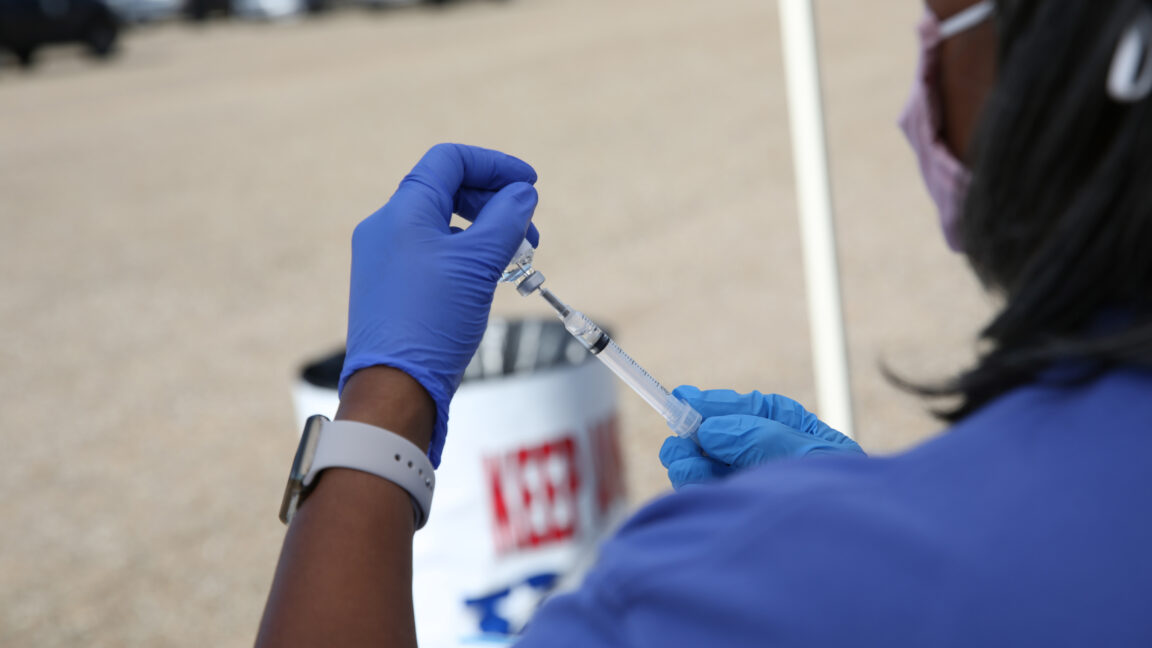10 Health Benefits of Dry January

Giving up alcohol for a month with the Dry January challenge can come with a host of health benefits, from better mental clarity to a lower risk of cancer. Dry January was launched in 2013 by charity Alcohol Change U.K. and since then it has grown increasingly popular around the world. "It isn't about stopping drinking forever," Dr. Richard Piper, CEO of Alcohol Change U.K., told Newsweek. "It's about taking back control of our drinking and realizing all the great benefits it brings to our health, wellbeing and quality of life, kickstarting the New Year on a positive footing."
1. Better Sleep and Energy Levels
First up, giving up alcohol can improve sleep quality and energy levels. Alcohol can disrupt our sleep cycles, so Alcohol Change U.K. says that many Dry January participants experience better quality sleep within one week of not drinking.
2. Better Gut Health
Drinking higher amounts of alcohol is associated with poorer gut health, including a less diverse gut microbiome and damage to the gut lining, which can lead to inflammation. Alcohol can also lead to the overproduction of stomach acid, and conditions such as heartburn and acid reflux. Giving it up could therefore improve gut health and relieve symptoms such as heartburn and bloating.
3. Better Immune System
Going without alcohol might help your body better fight off coughs, colds and illnesses-which is especially important during the winter months.
4. Better Mood, Focus and Clarity
With better sleep, energy and gut health—all closely linked with mental health—you may find that giving up alcohol has a positive effect on your overall mood. Alcohol Change U.K. says that after just two weeks, many Dry January participants feel the "fog lifting," meaning they experience better mental clarity, focus and energy levels. Drinking less alcohol is associated with fewer symptoms of mental conditions such as depression and anxiety.
5. Better Skin Health
With less alcohol, your skin might experience a glow-up. Alcohol is a diuretic, meaning it encourages the body to lose water and salt via urine, and it can lead to higher levels of inflammation in the body. So, going tee-total could lead to more moisturized, softer, healthier skin with less inflammation-related breakouts and redness—not to mention the benefits of better beauty sleep.
6. Better Liver Health and Detoxification
Alcohol is a toxin, so heavy drinking can put a strain on the liver as it works hard to get rid of it, called detoxification. Giving up alcohol can help support the body in detoxification—for instance by getting rid of heavy metals—and improve digestion, energy levels, hormone regulation, inflammation levels and skin health, as well as the risk of conditions such as liver disease.
7. Quicker Fitness Gains
Within two weeks of giving up alcohol, Alcohol Change U.K. says you may see better fitness gains. Alcohol can impede the body's ability to grow and repair muscle and it can disrupt hormonal balance, so giving it up might help workouts go further. Fewer nights out and hangovers may also mean more time for healthy habits such as exercise.
8. Better Weight Management
Alcoholic beverages contain a lot of empty calories that can make it difficult to maintain a healthy weight, so giving it up could be a simple way to reduce calories and manage excess weight.
9. Better Drinking Habits in the Future
"Many people that have participated in the Dry January challenge with Alcohol Change U.K., armed with all the positive impacts they've experienced, report that they've successfully returned to a low level of drinking or not drinking at all," said Piper. "13 percent of people decide to stay alcohol free for a bit longer, and 86 percent decide to cut back for the rest of the year." A study from 2016 on nearly 900 British adults also found that people who completed the Dry January challenge were likely to continue to maintain healthier drinking habits afterwards.
10. Lower Risk of Diseases and Early Death
Drinking less alcohol over a longer period of time can reduce the risk of more than 200 diseases and early death, according to the World Health Organization. Liver disease, heart diseases, different types of cancer and mental health conditions are all connected with drinking alcohol, so cutting back can reduce the risk of dying up to 24 years early from these diseases.
Who Should Not Try Dry January?
Dry January is not for people who have a serious alcohol dependence or who drink very high levels of alcohol, as trying to give alcohol up without support can be dangerous in these cases.
Reference
De Visser, R. O., Robinson, E., Bond, R. (2016). Voluntary temporary abstinence from alcohol during "Dry January" and subsequent alcohol use. Health Psychology, 35(3), 281–289. https://doi.org/10.1037/hea0000297








